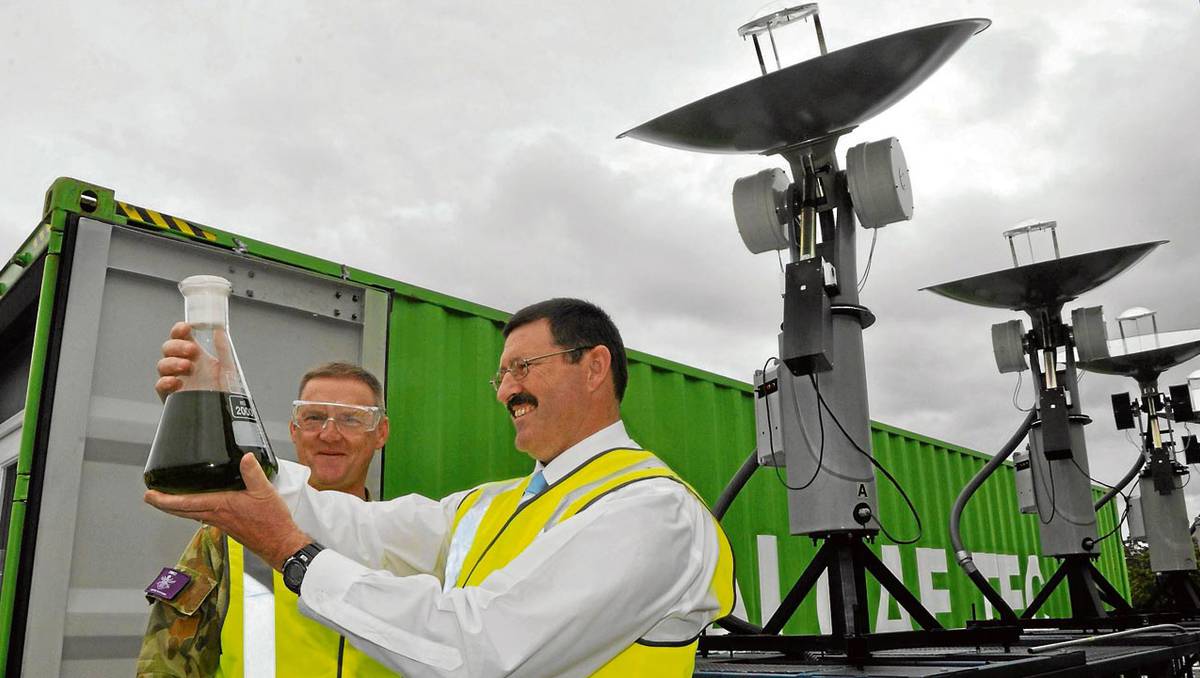ASX-listed Australian biofuel company Algae.Tec has signed a groundbreaking deal with NSW government-owned power company Macquarie Generation to site an algae carbon capture and biofuel production facility alongside a 2640MW coal-fired power plant in the Hunter Valley.
Announced today, the deal – which it is billing as a “world first” – will see Algae.Tec build an algal oil plant next to Macquarie’s Bayswater coal-fired power station in the Hunter Valley, where the coal plant’s carbon dioxide will be captured – 270,000 tonnes of it a year – and fed into an enclosed algae growth system and then converted into biodiesel.
Algae.Tec executive chairman Roger Stroud told RenewEconomy in an interview this morning that the agreement represented a milestone for the company, whose primary order of business has been to develop a relationship with a significant CO2 emitter.
Last November, Algae.Tec announced an MOU with German airline Lufthansa, to identify a site in Europe to build an algae plant to produce A-grade biofuel for the airline – a deal that Stroud says hasn’t come to fruition quite yet.
“We now have an agreement with one of the largest coal-power groups in Australia,” Stroud said today. Not to mention one of the country’s largest emitters, who, contrary to popular opinion, “genuinely want to try and reduce their emissions.”
At this stage, Stroud says the company is looking at a price tag of about $140 million for the Hunter Valley project, and is in talks with a US group about a bond issue in Europe, and with three other groups about funding sources.
Algae.Tec hopes to complete the funding round by the end 1st quarter in 2014. In the meantime, they will be conducting a permitting program and feasibility study, with the goal of kicking off construction of the plant by the beginning of 2nd quarter next year – using Worley Parsons, as previously announced – and then commencing production by end 2014.
“It’s a tight timeframe,” Stroud told RenewEconomy, “but we hope that if we can do these things in parallel, we’ll get there. And if we can’t do it by then, it’ll be close.”
Once in production, Stroud says the plant will initially supply biodiesel for use in transport and mining in the Hunter Valley region. To this end, the company has an off-take agreement with Biodiesel Industries Australia, whose Maitland commercial biodiesel plant was the first of its kind in Australia, producing a blended fuel that powers the Newcastle City Council’s car fleet and is sold to Caltex at an order of more than 600 million litres.
Stroud says Algae.Tec hopes it can now help provide a “purer feed” biodiesel to Caltex and others, and then in the longer term, the plant’s algal oil will be hydrogenated to produce A-grade jet fuel as well.
The company says it has learned a lot from its Nowra pilot facility, and developed quite a few innovations that will make the Hunter Valley plant “far more efficient and more flexible,” in that it will be built on a smaller footprint than was originally envisaged.










